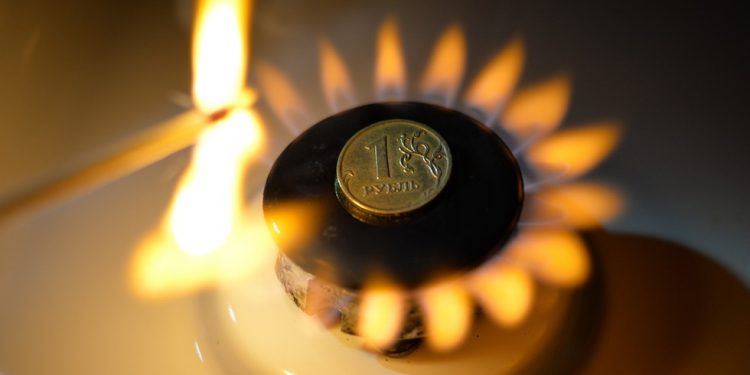Agencies-Gaza post
Germany and Italy agree to pay for Russian gas in rubles
Germany and Italy authorized national institutions to open ruble accounts with Russia’s Gazprombank to comply with the new payment system for natural gas and bypass a supply disruption, Reuters reported on Friday, citing sources.
The move comes after Poland, Bulgaria and most recently Finland rejected to accept Russia’s new payment mechanism, resulting in gas flows from Russia being halted.
According to the outlet, the move was supported by Brussels after talks with the European Commission and is not seen as a violation of the sanctions the EU has imposed on Moscow over the conflict in Ukraine.
Russia’s new payment system requires gas buyers of “unfriendly” Countries that imposed sanctions on Russia to open accounts in Russia’s Gazprombank. They can then deposit money in the currency of their choice, which the bank will alter into rubles and transfer to Gazprom.
According to reports, German gas importers have been informed by Berlin that they can open ruble reserves to pay for Russian gas as long as the charges they make to Gazprombank are not in Russian currency.
The Italian government was also reportedly in talks with the European Commission, after which Italian energy company Eni announced that it had initiated proceedings to open accounts with the Russian bank, one in euros and one in rubles.
 “The decision is consistent with what was communicated by the [European Commission’s energy] department‘ one of the sources told Reuters. Italy’s Prime Minister Mario Draghi last week described the gas payment situation as a legal “gray area,’ as there is no official decision on this subject within the EU. In its most recent written guidance, the EU said companies can buy Russian gas without violating sanctions if they continue to pay in the currency of their existing contracts, but did not mention whether opening ruble accounts would constitute a breach.
“The decision is consistent with what was communicated by the [European Commission’s energy] department‘ one of the sources told Reuters. Italy’s Prime Minister Mario Draghi last week described the gas payment situation as a legal “gray area,’ as there is no official decision on this subject within the EU. In its most recent written guidance, the EU said companies can buy Russian gas without violating sanctions if they continue to pay in the currency of their existing contracts, but did not mention whether opening ruble accounts would constitute a breach.
According to Reuters, some EU diplomats say the Brussels guidelines are deliberately vague to allow countries to continue buying Russian gas.
“One has the impression that it leaves the door open to business as usual‘ said one of the sources, while another said the situation was creating a level of creative ambiguity” with the aim of,” leaving just enough room for all the different variations.”
Source: Gazaapost

















